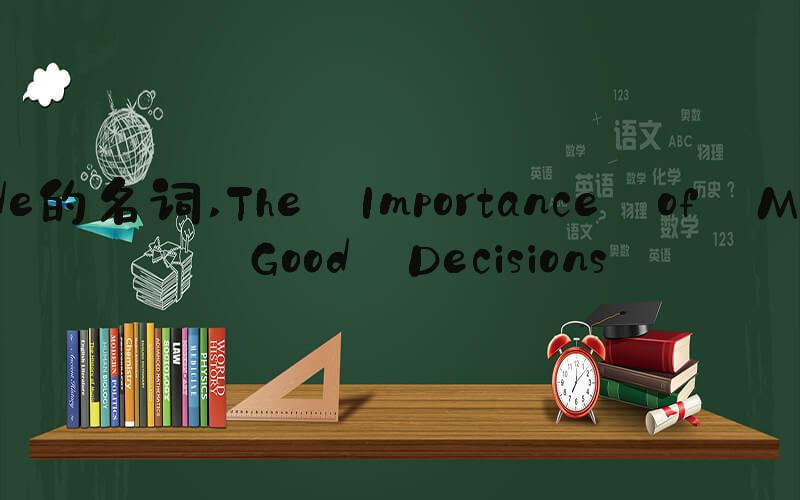
What is a Decision?
A decision can be defined as a choice made by an individual or a group of individuals after careful consideration of available options. Decisions can be related to various aspects of life, such as personal, professional, or social. The process of decision-making involves evaluating the pros and cons of each option and selecting the one that aligns best with one's goals and values.
The Importance of Making Good Decisions
The quality of our decisions determines the quality of our life. Good decisions lead to positive outcomes, whereas bad decisions can have unfavorable consequences. Effective decision-making skills are essential for personal and professional growth and success. Failure to make good decisions can result in missed opportunities, dissatisfaction, and regret.
Factors Affecting Decision-Making
Various factors can influence our decision-making process, such as emotions, past experiences, cognitive biases, and external factors such as social pressure or cultural norms. Emotions can cloud our judgment and prevent us from making rational decisions. Past experiences can create cognitive biases, making it difficult to consider new information objectively. Understanding these factors can help in making more objective and informed decisions.
The Decision-Making Process
The decision-making process involves several steps, including identifying the problem, gathering information, evaluating options, making a choice, and taking action. The first step involves recognizing the problem or issue that needs to be resolved. Gathering relevant information and evaluating options help in making an informed decision. After selecting the best choice, it is essential to take action and implement the decision. Regular evaluation and reflection can help in assessing the effectiveness of the decision and making any necessary adjustments.
The Role of Intuition in Decision-Making
Intuition is often considered a valuable tool in decision-making. It involves the ability to make a decision based on instinct or a gut feeling, without relying on conscious reasoning. While intuition can be helpful, it can also lead to biased or subjective decision-making. It is essential to combine intuition with logical reasoning and informed decision-making to make the best choices.
The Consequences of Indecision
Indecision refers to the inability to make a decision or taking too long to decide. It can result in missed opportunities, wasted time, and increased stress. Indecision can also lead to a lack of confidence and hamper personal and professional growth. It is essential to recognize the root cause of indecision and work towards developing effective decision-making skills.
In Conclusion
To sum up, decision-making is an essential aspect of our lives, and the ability to make good decisions is crucial for personal and professional success. Understanding the factors that influence decision-making, following a structured process, and combining intuition with informed decision-making can help in making better choices. Avoiding indecision and taking timely action is essential for achieving our goals and living a fulfilling life.

暂无评论
发表评论